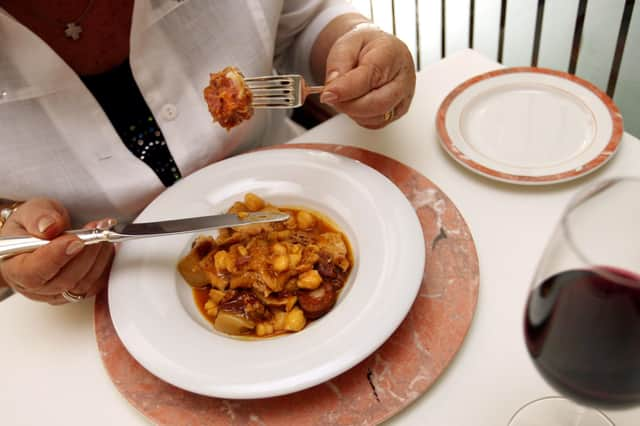Ethical carnivores and those who just like good food should be getting into offal – Stephen Jardine


From the location to the menu and the price point, there are so many variables and that is before you think about the economic situation and disposable income.
In contrast, opening a restaurant and ensuring it remains empty is incredibly easy. You just have to hire Donald Trump to welcome customers, advertise a menu featuring liver, kidneys and tripe and then stand back and admire the tumbleweed.
Advertisement
Hide AdAdvertisement
Hide AdSelling offal is awfully hard. Fifty years ago, every restaurant in the land would have featured at least one of the less choice cuts on their menu.
Down the years, we’ve become more squeamish and the rise of veganism seemed to be the final nail in the coffin for organ eating. A recent National Food Survey found consumption of liver had fallen from 50g per person in 1974 to just 5g in 2014.
When I moved to France to live and work, I noticed every self-respecting restaurant had chicken liver pate, rognons de veau and tripes a la mode on the menu. Even now Paris remains your best bet if you want those traditional tastes today but in most other places they are firmly out of fashion.
But maybe that is about to change. If you want to have meat on your plate then consuming all parts of the animal is the very least you can do. Sustainable eating means minimising waste and not limiting what you cook and eat based on how it looks and sounds.
At St Johns Restaurant in London, chef Fergus Henderson pioneered this approach.
“Nose-to-tail eating is not a bloodlust, testosterone-fuelled offal hunt. It’s common sense and it’s all good stuff,” he said.
It’s also cheap. With the cost of living soaring to the highest point in 30 years, these humble cuts of meat are low cost and long overdue a revival.
Just as Jamie Oliver took on school dinners and Hugh Fearnley-Whittingstall tackled the supermarkets, perhaps we need a chef who can restore the fortunes of the ingredients who’s names we dare not speak?
Advertisement
Hide AdAdvertisement
Hide AdWhile we’re at it, let’s tackle those names. Tripe and onions sounds considerably less appealing than a similar German dish Kutteln Franzosische Art so let’s rebrand offal with words that are more appealing and less offensive.
I can’t quite imagine what those would be at the moment but if branding experts can make a success of a product called Toilet Duck then I’m pretty sure they can turn around liver and kidneys.
The market is ready for this. With veganism now in the mainstream, there is the inevitable counter reaction. The online Ethical Butcher reports a rise in sales of heart and liver linked to their nutritional benefit and a new wave of London restaurants are serving up everything from ox heart to pork trotters.
Here in Scotland we should already be blazing a trail on all this because our national dish is basically a celebration of the bits left behind.
As the nation who gave the world haggis, if we are happy to eat heart, lungs and liver all served up in a stomach lining, then who are we to be a bit squeamish about anything else?
A message from the Editor:
Thank you for reading this article. We're more reliant on your support than ever as the shift in consumer habits brought about by coronavirus impacts our advertisers.
If you haven't already, please consider supporting our trusted, fact-checked journalism by taking out a digital subscription.
Comments
Want to join the conversation? Please or to comment on this article.